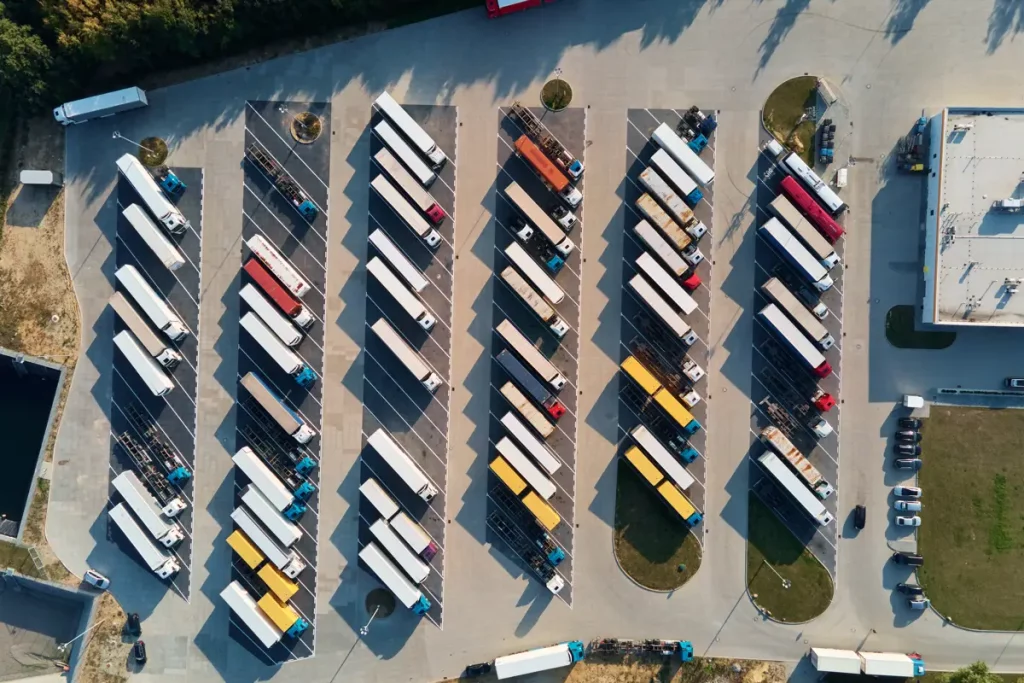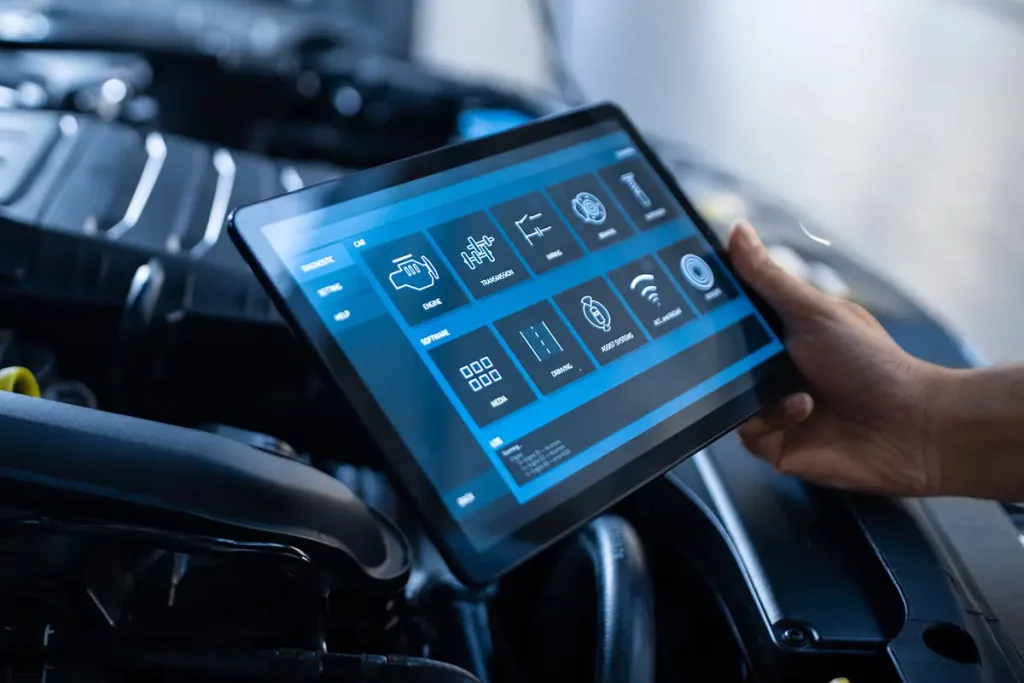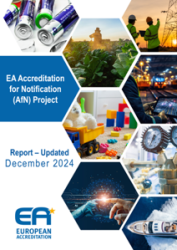
02
Expression of the scopes of accreditation for each new EU legislation
Accreditation is the best means to demonstrate that a conformity assessment body has the technical competence to perform its activities as required by relevant legislations, schemes, and standards, and is always granted for a defined scope. The scopes of accreditation must be clearly defined to ensure they are accurate, unambiguous, and easily understood by users, including authorities. It is also important that the expression of scopes of accreditation is comparable to ensure a level playing field between accredited conformity assessment bodies.
The harmonisation of the expression of accreditation scopes is essential for the acceptance of accreditation by users.
Hence, the General Assembly – acting upon recommendation from the Technical Management Board – agreed that the Technical Committees shall define the content of the scopes of accreditation for each new EU legislation. The defined scopes of accreditation shall be deemed first as best practice. The Technical Management Board shall evaluate after 2 years whether better harmonisation of the content of accreditation scopes could be achieved.
Revision of EA-2/17 EA Document on Accreditation for Notification Purposes
EA-2/17 EA Document on Accreditation for Notification Purposes presents the EA policy for the assessment and accreditation of notified bodies. One key element of EA-2/17 is defining the preferred accreditation standard for each conformity assessment procedure (module) and Union Harmonisation Legislation.
To improve the application of EA-2/17, the General Assembly approved the New Work Item Proposal for a comprehensive revision of this mandatory document in May 2024. The revision of EA-2/17 falls within the remit of the Horizontal Harmonization Committee, which will consider input from all interested parties, especially from the European Commission, Notifying Authorities, and Notified Bodies.
The first draft of the revised EA-2/17 is expected to be available for comments in Spring 2025.

Safe and secure parking areas
The European Commission adopted the Delegated Regulation (EU) 2022/1012 for safe and secure parking areas to protect drivers and their cargo. National Accreditation Bodies shall accredit CABs certifying parking areas in compliance with the Regulation.
The Technical Management Board approved that National Accreditation Bodies shall accredit Conformity Assessment Bodies in accordance with EN ISO/IEC 17021-1 under the following conditions:
- The CAB shall, in its evaluation activities, include an inspection and an audit to ensure that the parking area complies with the specific requirements of Annex I of the Delegated Regulation (EU) 2022/1012;
- The inspection shall meet the applicable requirements of EN ISO/IEC 17020, and the audit to test the implementation of the procedures shall meet the requirements of EN ISO/IEC 17021-1;
- The certification body and any part of the same legal entity and entities under its organizational control shall not:
a. be the designer, implementer, provider, or maintainer of the certified service;
b. offer or provide consultancy to its clients;
c. offer or provide management system consultancy or internal auditing to its clients where the certification scheme requires the evaluation of the client’s management system.
Note: This does not preclude the possibility of exchange of information (e.g., explanations of findings or clarifying requirements) between the certification body and its clients;
- The certificate shall include the statement that the management system has ensured that the parking area fulfils:
a. all of the standards on the minimum level of service set out in Section A of Annex I to Delegated Regulation (EU) 2022/1012;
b. all of the standards of one of the security levels set out in Section B of Annex I to Delegated Regulation (EU) 2022/1012.
The NAB shall ensure that the scope of the accreditation includes reference to the requirements of EN ISO/IEC 17021-1, the Delegated Regulation (EU) 2022/1012, and the Regulation (EC) No 561/2006.
A harmonized approach is required to address inconsistencies between EN ISO/IEC 17021-1 standards and the Delegated Regulation requirements for conformity statements. This resolution applies solely to the referenced legislation and scheme.

Update of the AfN Report
EA started the AfN project in 2014, aiming to harmonize the accreditation requirements used as the basis for notification by defining the preferred accreditation standard(s) for each Union Harmonization Legislation.
The AfN (Accreditation for Notification) report was updated in 2024 to cover four new legislations:
- Regulation (EU) 2024/1689 on laying down harmonised rules on artificial intelligence
- Commission Delegated Regulation (EU) 2024/370 supplementing Directive (EU) 2020/2184 by laying down conformity assessment procedures for products that come into contact with water intended for human consumption and the rules for the designation of conformity assessment bodies involved in those procedures
- Regulation (EU) 2024/2847 on horizontal cybersecurity requirements for products with digital elements (Cyber Resilience Act)
- Regulation (EU) 2023/1542 concerning batteries and waste batteries.

Workshop on Virtual sites/ Virtual organizations
Over the years, EA Members have faced more cases where a Conformity Assessment Body is working in a virtual environment (clouds, databases, video-conferencing tools, etc.). Sometimes it leads to a situation where the Conformity Assessment Body doesn’t need a specific location or even any physical location. They are virtual sites or virtual organizations, and this opens several questions about whether to accept this and/or how to assess it.
For this reason, a specific workshop on virtual sites/organisations was held by the Horizontal Harmonisation Committee.
The results can be summarised as follows:
- Virtual sites as defined in ISO/IEC 17011 exist already, and their accreditation by our member NABs is proceeding without major problems identified. For virtual sites, there is a significant difference regarding whether the site of the accredited body is located in an online environment (e.g. a database) or whether the conformity assessment activity itself is done in a virtual (instead of physical) way (e.g. by simulation, for instance a simulation of a crash test).
- For virtual organizations, there is presently no “official” definition laid down in standards and/or legislation. Several problems have been identified when accreditation is provided for virtual organizations. These problems include the fact that unannounced visits at virtual organizations are obviously not possible. Besides this, virtual organizations can change their structure very rapidly and, together with this, could easily grow international (e.g., having virtual sites and/or activities that cannot easily be allocated to a specific state of establishment), thus creating a case of cross-border activities.

SERMI scheme
The Commission Delegated Regulation (EU) 2021/1244 amends Annex X to Regulation (EU) 2018/858 regarding standardized access to vehicle on-board diagnostics information, repair and maintenance information, and procedures for accessing vehicle security information. The European Commission appointed SERMI (Scheme for accreditation, approval, and authorization to access security-related repair and maintenance information) to manage the scheme. The mandatory application of the SERMI scheme was approved by the EA General Assembly in 2023.
One important issue in this context is the provision regarding cross-border activities by the accredited inspection bodies. Pursuant to the Delegated Regulation (EU) 2021/1244 Independent Operators (IO) wishing to receive security-related Repair and Maintenance Information shall obtain an approval inspection certificate from a body accredited by the NAB of the Member State where the IO is established.
That means that NABs cannot accredit Inspection Bodies for cross-border inspection activities. Accordingly, the accreditation information shall not refer to countries where the Inspection Body may operate.
FAQ directories expanded
EA is updating and publishing the Frequently Asked Questions (FAQs) on the EA Website for the Certification, the Horizontal Harmonization, and the Laboratory Committees.
It has been decided to expand the FAQs for issues related to the accreditation of inspection bodies. Accordingly, a specific FAQ section is under preparation on the EA Committees’ FAQs page, with a first set of IC members’ agreed-upon questions and answers.

Future guidance on Flexible scopes for Proficiency Testing (PT) Providers
The accreditation of conformity assessment bodies for so-called flexible scopes is well-known in certain sectors. A flexible scope allows a laboratory to make changes in methodology and other parameters that fall within the laboratory’s competence, as previously confirmed by their National Accreditation Body and within the boundaries of the scope flexibility. A flexible scope would allow the laboratory to claim accreditation without prior approval from its National Accreditation Body for testing not currently defined within a fixed scope.
Flexible scopes can also be important regarding the accreditation of Proficiency Testing Providers. The need for a guidance document on Flexible scopes for Proficiency Testing (PT) Providers has been confirmed to strengthen a harmonised approach. It shall consider the following:
- How to formulate the flexible scope for a PTP;
- Possible assessment approaches and definition of boundaries.


